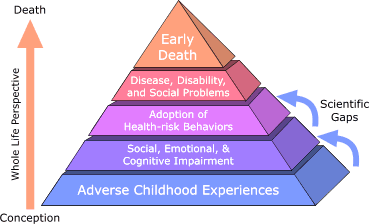Part 2 “How to Heal” of my 11-6-15 podcast with therapist Jeff Friedman:
 CLICK to BUY “Don’t Try This Alone”
CLICK to BUY “Don’t Try This Alone”
What books and resources would you recommend for trauma?
I really recommend Dr. Allan Schore’s Sept 2014 Oslo speech video “The Most Important Years;” on my Resources tab, see the subtab on Audios & Videos. Dr. Schore (left) explains that babies are born screaming in pain because we’re designed for an adult’s emotional brain to show us “Someone cares, I can relax.” Mom’s love actually creates the neural networks in a baby’s brain needed to calm down, Schore wrote in the’ 90s. Now, in the last 5 years, brain scans have proven him correct. But with infant developmental trauma and attachment disorder, no adult showed us how to calm, so we never did. Infant emotions are still crying painfully deep inside us, says Schore. We’re unaware of it, but that is the cause of our anxiety, fear, anger, and misery.
Several healing tools are really helping me now. Links to all these below are on my Resources tab, sub-tab Healing Tools. I’m sorry to keep mentioning my website but I was forced to build it when I couldn’t find all this centralized anywhere else. My home page has almost 40,000 hits; my book tab over 12,000 hits and there are 4 more tabs. It gets hits because there’s a large amount of content on my pages. Here are the healing tools:
Neurofeedback is a computer program which therapists use to train clients to calm brain waves. We with early neglect and abuse have disorganized brains and fear circuits dominate. Neurofeedback can calm this by growing new neural networks, the way a mother grows a baby’s neural networks. I was moved to tears by Sebern Fisher’s recent interview “Neurofeedback in the Treatment of Developmental Trauma” on ShrinkRap radio, as she described how necessary love and attachment are to the creation of a human brain.
EMDR can resolve trauma using bilateral eye motion, bilateral sounds, or even tapping on either foot. When a therapist moves a finger from side to side before the patient’s eyes, it guides the eyes to move naturally as in rapid eye dreaming. That’s where we process most trauma. That means, we move traumatic memories out of short-term memory banks where it feels like a terrifying flash happening “right now,” into long-term memory banks where we feel it’s past, and we’re “over it.
Tapping: For years I’ve used tapping, aka Emotional Freedom Technique (EFT). We use fingertips to tap a few times on 9 of the body’s acupuncture points. It’s a fantastic aid in calming down, or even just getting to sleep at 2 am. I used it again just this morning to release a pile of anger.
Meditation: Meditation is where we ultimately need to go to fully heal, but it can be terrifying for us with infant trauma. To get started, we can work with our therapist on it, and meditate in groups. Please check Dr. Tara Brach’s “Basic Elements of Meditation Practice” videos on youtube; it’s also on my Resources tab, sub tab Audio & Video.
Books: on my Resources tab, look for the subtab on Books:
–“The Grief Recovery Handbook” by John James & Russell Friedman
–“A General Theory of Love”, Thomas Lewis, Richard Lannon et al; 2000.
–“Healing Trauma: A Pioneering Program for Restoring the Wisdom of Your Body,” Peter A Levine
–“Changes that Heal,” Dr. Henry Cloud
–“The Body Keeps the Score” Dr. Bessel van der Kolk, MD
Didn’t you say recently that there’s a lot of trauma in high places?
Yes, in part because emotional abuse is really hard to spot. Emotional abuse alone can be just as damaging as overt abuse, but I didn’t know I had trauma the whole time I was a high-functioning business gal with a math degree, working with rocket scientists. When I found out I had trauma, I used to say, “Nobody beat me or raped me. What’s wrong with me!?”
What’s wrong was, I had a huge left thinking brain, but an infant’s right emotional brain that took a lot of damage. As Allan Schore says, when the mom doesn’t grow the infant’s right brain, the child’s left brain often over-develops in an effort to control the emotional chaos. My mom didn’t hold me as an infant or show me “it’s safe out here so you can stop crying,” to grow my right brain. So it remained an infant right brain. Instead, I learned that “it’s dangerous as heck out here, the world is scary.” I probably didn’t stop crying until my left brain grew myelin and began to think at 2 1/2 and I realized, cognitively, that if I didn’t shut up, they’d swat me.
I’ve been told: “Most people with what you have take it to the grave because they’re so intelligent, no one imagines anything’s wrong.” One thing motivating me to finish this book is: I’m betting that 20 to 40% of smart people in high places have infant or child trauma hiding inside where no one can tell, just as I did. Maybe my book can help them wake up.
That’s why our corporations, governments and so forth make a lot of un-compassionate decisions. No one showed them how to do compassion as kids. That’s why wee spend over $80 billion a year to drug school kids into being quiet, but there’s no funding for serious therapy for children.
Maybe my book will help people see reality. Allan Schore said in his Oslo video that UNICEF put out a report in 2013 saying society needs a massive shift of resources toward making sure at least the child, from conception to age 3 at least, and families with young children, get major public support to try to stop child trauma at the source. $80 billion would sure help.
Any closing thoughts?
Sebern Fisher hit it on the nose: the real answer to trauma is love. Babies need our mothers to love us, to even just have the brain cells for emotional well-being. “We need to know that the Big Person who’s taking care of us, loves us,” says Dr. Henry Cloud, and then gradually a baby learns to grow “love inside” he says.
Or Not. What if I didn’t get love as an infant? Then emotional chunks of me are an infant’s emotions, and I need to find out about that. Then I need to go where I can get that part of me loved! Not to new parents, but I do need to feel the kind of love a good parent gives. And not to romance; we don’t want an infant or toddler on Match.com. Instead, I need to learn that I can receive platonic love from a really fine therapist, and that I can love them back. I need to learn that I can do deep platonic love with my Grief Partners and platonic friends at church or in small groups or yoga or meditation groups. I need to feel and give unconditional platonic love.
——————
Kathy’s news blogs expand on her book “DON’T TRY THIS AT HOME: The Silent Epidemic of Attachment Disorder—How I accidentally regressed myself back to infancy and healed it all.” Watch for the continuing series each Friday, as she explores her journey of recovery by learning the hard way about Attachment Disorder in adults, adult Attachment Theory, and the Adult Attachment Interview.
————-
Comments are encouraged with the usual exceptions; rants, political speeches, off-color language, etc. are unlikely to post. Starting 8-22-16, software will limit comments to 1030 characters (2 long paragraphs) a while, until we get new software to take longer comments again.
7,523 total views, 1 views today



My partner for 30 yrs. did not have a mother that payed much attention to her and at age 7 & 8 she was molested by her uncle. She can be intimate giving only. She never wants to receive affection. She has a hard time with any kind of relationship (friends, work). I was wondering if this would be something that would help her. She always says she is fine but I see her child like ways come out all the time.
Yes I hope it would help her! She is not alone, so many of us had these troubles and we have no idea how much they hurt us.
Thank you. I have many articles posted on my site about this content. Please start here where you’ll find links to several articles on Tapping, EMDR, Neurofeedback etc: http://attachmentdisorderhealing.com/resources/tools/